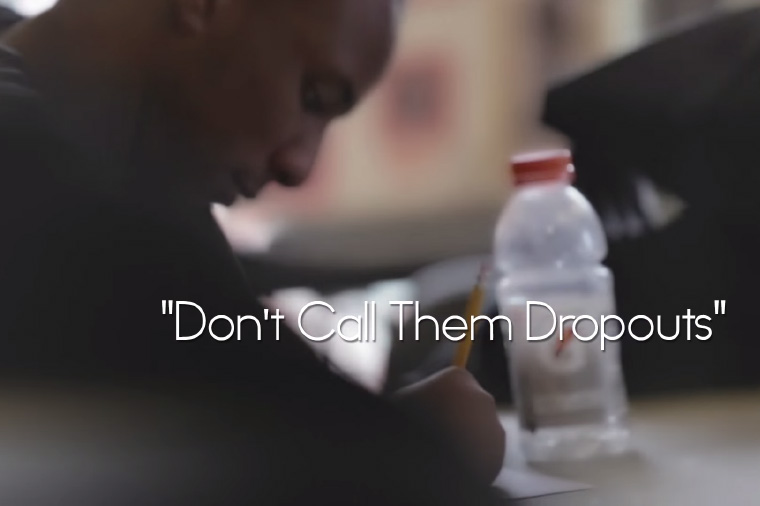Contrary to popular opinion, kids who drop out of high school are often very capable, according to America’s Promise Alliance.
The organization released a brief in August, “Dispelling Stereotypes of Young People Who Leave Before Graduation.”
The report “shows that young people who leave school often possess the same individual strengths as young people who stay in school,” said Marissa Cole, associate director of the Center for Promise, the research arm of America’s Promise Alliance.
Researchers looked at five key social and emotional strengths identified by the Collaborative for Academic, Social, and Emotional Learning (CASEL): responsible decision-making, self-management, relationship skills, social awareness, self-awareness.
Then they examined the personal stories of 27 young people from among the 283 who took part in interviews about why they left school. Researchers then judged which strengths, if any, each young person demonstrated.
The analysis showed that kids who quit school “expressed the same competencies that have been previously identified among school-going youth as prerequisites for academic success,” according to the brief.
The young people in the study left school because of circumstances that included needing to take care of sick family members, being in abusive or violent situations or needing to earn money for their families, according to the report.
[Related: Young Family Caregivers Face Many Struggles, Get Little Support]
The decision to leave school did not mean they could not make responsible decisions.
“My mom could not cook herself, she could not bathe herself — she couldn’t do anything on her own, so I had to step up,” said one participant referred to as Andrew in the brief.
Another young person said: “I was working [and] I was also in a group home, so school was the last thing on my mind. I didn’t really care about school cuz school wasn’t puttin’ clothes on my back and school wasn’t feeding me … So I did what I had to do.”
The research pointed out their level of awareness.
“My grandma wanted to keep me busy, ‘cause I grew up in [name of city] so she wanted to keep me off the streets,” said Carlos.
Self-awareness includes identifying specific turning points in one’s life — such as making decisions that led to leaving school.
One boy witnessed his brother being shot and paralyzed.
“Going through that, I turned into a monster … I started getting into the life, started carrying guns and stuff,” the boy said.
Cole said the findings “challenge the stereotypical beliefs that young people who leave school without graduating are doing so because they are lazy, unmotivated or deficient.”
Much research looks at the risk factors in the lives of kids who drop out of school, but little has been done with a positive youth development approach, which focuses on their strengths, according to the brief.
“In recognizing young people’s strengths, interventions and policies can be designed to better serve them and their individual needs,” Cole said.
Youth-serving programs can “meet youth where they are” and build on their abilities, the brief said.
The research was done as part of the 2014 report of the America’s Promise Alliance “Don’t Call Them Dropouts.”
More stories related to this one:
Widespread Youth Unemployment Seen as Worldwide Risk
After Spectacular Rise of National After-school Program, What Comes Next?
The U.S.’ Puzzling Refusal to Ratify the U.N. Convention on the Rights of the Child


























